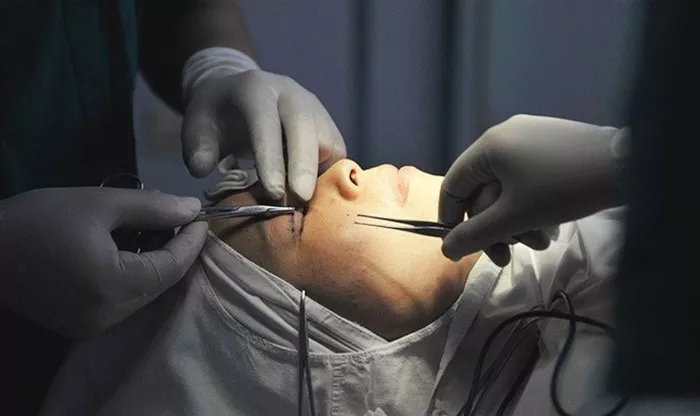Eye surgery encompasses a range of procedures, from cataract removal to LASIK and retinal repairs. Each procedure has its own unique recovery timeline and considerations. This article will provide a comprehensive overview of what to expect during recovery for various types of eye surgeries.
Cataract Surgery
Overview of Cataract Surgery
Cataract surgery is one of the most common eye procedures. It involves removing the clouded lens of the eye and replacing it with an artificial intraocular lens (IOL). This surgery is typically performed on an outpatient basis.
Immediate Post-Operative Period
Day 1-2: Vision may be blurry or hazy. It is normal to experience some discomfort and light sensitivity. Patients should rest and avoid strenuous activities.
Days 3-7: Many patients see improvements in their vision. Discomfort and light sensitivity should decrease. Follow-up visits with the ophthalmologist are essential to monitor healing.
Short-Term Recovery
Weeks 1-2: The majority of vision stabilization occurs. Patients may still experience mild dryness or irritation. It is crucial to follow prescribed eye drop regimens and avoid eye strain.
Long-Term Recovery
Months 1-3: Vision typically stabilizes. It may take a few months for full visual clarity and any residual glare or halos to subside. Regular follow-up appointments ensure that the eye is healing properly.
LASIK Eye Surgery
Overview of LASIK Surgery
LASIK (Laser-Assisted In Situ Keratomileusis) is a popular refractive surgery to correct vision issues such as myopia, hyperopia, and astigmatism. The procedure involves reshaping the cornea using a laser.
Immediate Post-Operative Period
Day 1: Vision may be blurry. Patients may experience dryness, itchiness, or mild discomfort. Protective eye shields are typically used to prevent rubbing.
Days 2-7: Vision usually improves significantly. Some patients may still experience dry eyes and visual fluctuations. Regular use of prescribed eye drops is important.
Short-Term Recovery
Weeks 1-4: Vision should continue to improve. Most patients return to normal activities within a few days. However, it is important to avoid strenuous activities and protect the eyes from dust and water.
Long-Term Recovery
Months 1-6: Full visual stability is often reached. Patients should have regular check-ups to monitor the healing process. Any persistent dryness or visual fluctuations should be reported to the ophthalmologist.
Retinal Surgery
Overview of Retinal Surgery
Retinal surgery includes procedures to repair a detached retina, treat macular degeneration, or address other retinal issues. The recovery process can be more complex than other types of eye surgeries.
Immediate Post-Operative Period
Day 1-3: Vision may be significantly impaired. Patients often need to maintain specific head positions (e.g., face-down) to aid the healing process. Pain and discomfort are common but manageable with medication.
Short-Term Recovery
Weeks 1-4: Vision may gradually improve. Patients must follow strict post-operative instructions, including limited physical activity and careful monitoring of symptoms. Follow-up appointments are critical to ensure proper retinal reattachment.
Long-Term Recovery
Months 1-6: Complete recovery can take several months. Vision stabilization may be gradual, with improvements continuing over time. Regular eye exams are crucial to assess the success of the surgery and monitor for complications.
See Also: What Eye Surgery Does Medicare Cover?
Glaucoma Surgery
Overview of Glaucoma Surgery
Glaucoma surgery aims to lower intraocular pressure to prevent damage to the optic nerve. Procedures include trabeculectomy, tube shunt surgery, and minimally invasive glaucoma surgeries (MIGS).
Immediate Post-Operative Period
Day 1-3: Patients may experience discomfort and blurred vision. Medication to control pain and inflammation is usually prescribed. Eye shields or patches may be used to protect the eye.
Short-Term Recovery
Weeks 1-2: Vision may slowly improve. It is essential to avoid activities that increase intraocular pressure, such as heavy lifting or straining. Regular use of prescribed eye drops and medications is necessary.
Long-Term Recovery
Months 1-3: The eye pressure should stabilize. Vision may continue to improve, but full recovery may take several months. Regular follow-up visits are important to ensure that intraocular pressure remains controlled and to check for any complications.
General Tips for Recovery After Eye Surgery
Follow Post-Operative Instructions
Adhere strictly to the surgeon’s instructions regarding medications, eye drops, and follow-up appointments. These are crucial for proper healing and to prevent complications.
Protect Your Eyes
Avoid rubbing or touching the eyes. Use eye shields or patches as directed. Protect your eyes from bright lights and dust.
Avoid Strenuous Activities
Refrain from engaging in strenuous physical activities or heavy lifting until cleared by your ophthalmologist. This helps in avoiding any undue pressure on the healing eye.
Monitor Your Symptoms
Report any unusual symptoms, such as severe pain, sudden vision loss, or excessive redness, to your eye doctor immediately. Prompt attention can prevent serious complications.
Regular Follow-Up Visits
Attend all scheduled follow-up appointments. These visits are essential to monitor the healing process and make any necessary adjustments to your treatment plan.
Conclusion
Recovery times for eye surgery vary depending on the type of procedure and individual factors. While most patients experience significant improvement within weeks, complete recovery may take several months. Following your ophthalmologist’s instructions and attending regular follow-up appointments are key to ensuring a successful recovery.
Related topics:
- What Are the Different Types of Eye Surgery?
- What is the Latest Eye Correction Surgery?
- Does Laser Eye Surgery Permanently Fix Eyesight?


